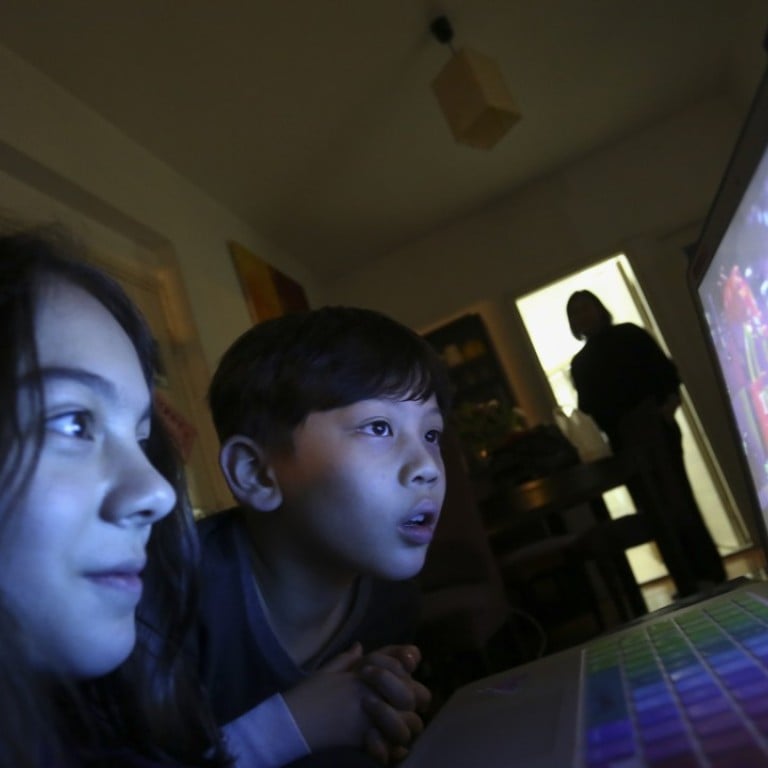
One in 10 Hong Kong primary school pupils face video game addiction
Survey finds young Hongkongers spend eight hours a week playing video games on average, and experts have warned it can lead to health problems
One in 10 upper primary school pupils in Hong Kong is either already addicted to video games or at risk of becoming an addict, according to a new survey.
Psychologists warned of problems such as obesity and poor eyesight as well as emotional problems among gaming addicts, and called for educating both children and parents on the subject.
The survey of more than 2,000 primary four to six pupils, carried out by the University of Hong Kong from March to May this year, found that about one-tenth of them spent more than 21 hours a week playing games on computers or smartphones. On average, they all devoted eight hours a week to gaming.
Cecilia Cheng, project leader and psychology professor at the university, said addicted children tended to become anxious and sad when they had to cut down on gaming.
They could also lose interest in other hobbies while constantly thinking about video games, she said.
Based on the survey results, researchers estimated that 5.4 per cent of pupils in Hong Kong could be addicted to gaming, and another 4.4 per cent were at risk of addiction.
We are not scolding the parents or children for playing games. Actually [children] can learn how to solve problems and how to make strategies
The 2,006 pupils surveyed, with an average age of 10, came from eight schools in the city.
“There are many children who play video games in Hong Kong,” project coordinator Angel Li Yee-lam said. “We hope the Education Bureau will pay more attention to it and include gaming addiction prevention into the Health School Policy, instead of just focusing on drug abuse.”
The problem is more prevalent among boys, who spent an average of 11 hours a week on gaming, compared with 5.7 hours for girls, according to the survey.

Boys also had higher exposure to content involving fighting or hurting others, with more than 40 per cent saying they always or often played violent games.
“Children have a strong tendency to imitate others,” Cheng said. “We are worried they will assume violence is part of daily life after watching too much of that content.”
Cheng also warned of the risk of mental problems such as social disorders or an overreliance on gaming to relieve stress.
A student guidance officer at a primary school in Kwun Tong said a separate survey conducted in 12 classes at the school showed a negative correlation between gaming time and academic performance.
The teacher said parents had to reduce smartphone usage themselves if they wanted to help their children cut down on gaming.
“You can see parents playing with smartphones when they are waiting to pick up their kids,” she said. “This kind of habit affects young children.”
The team at the University of Hong Kong has been providing lectures on preventing gaming addiction for parents since 2015 in its Game Over Programme.
Researchers also plan to launch a website in August to help parents exert control over their children’s online gaming activities.
Angel Li advised parents to discuss gaming time limits with their children and engage in outdoor activities with them.
Cheng said video games could have positive effects on children’s development, but only if they played the right types of games for a reasonable amount of time.
“We are not scolding the parents or children for playing games,” she said. “Actually [children] can learn how to solve problems and how to make strategies.”
“We hope parents can make use of these games instead of letting them play any games, especially the violent ones.”

